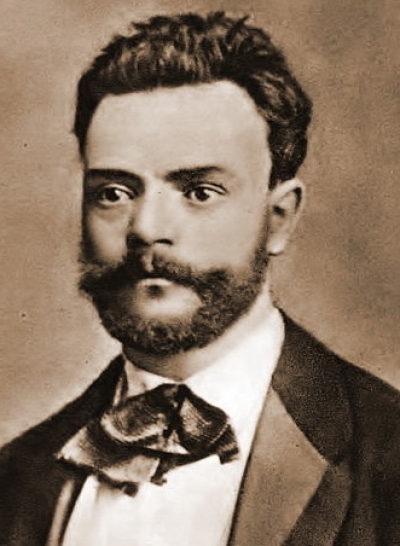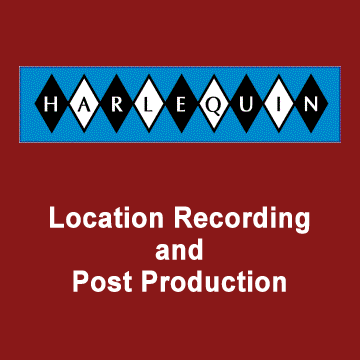Playlist 1 July 2018 |
|
| Rhythm and Blues – Philip Sparke | Opening for weekly show Foden's Band MD: Michael Fowles - 2010 |
| Abundance - Marcus Venables | International Staff Band Of The Salvation Army BM: Dr. Stephen Cobb - 2018 |
| Pique Dame (The Queen of Spades) - Franz von Suppe | Cory Band MD: Philip Harper - 2018 |
| Far and Away - John Williams arr: Philip Harper | The BT Band MD: Graham O'Connor - 1998 |
| Brilliante - Peter Graham | Guest Euphonium Soloist David Thornton with the Old Silkstone Band MD: Richard Evans - 2006 |
| A Southern Gospel Suite - Kumbaya - Deep River - Down By The Riverside - Alan Fernie | Brighouse and Rastrick Band MD: David Hirst - 2004 |
| Love and Marriage - as performed by Frank Sinatra arr: Klaas van der Woude | Soli Brass (The Netherlands) MD: Piet Groeneveld - N/K |
| Rusalka's Song to the Moon - Antonin Dvorak arr: Gordon Langford | Cornet Soloist Kirsty Abbotts with the Sellers International Band MD: Major Peter Parkes - 1999 |
| Beautiful Dreamer - Stephen Foster arr: Howard Snell | CWS (Glasgow) Band MD: Howard Snell - 1990 |
| Piper In The Meadow - Traditional arr: Bob Barrett and Edrich Siebert | Williams Fairey Band MD: Roy Newsome - 1986 |
| Marching Onward - Ivor Bosanko | The International Staff Band BM: LT. Col Ray Bowes - 1988 |
| Rhapsody in Brass - Dean Goffin | Buy As You View Cory Band MD: Dr. Robert Childs - 2006 |
| Caprice Brilliante (The Debutante) - Herbert Lincoln Clarke | Cornet Soloist Herbert Lincoln Clarke with the Sousa Band MD: John Philip Sousa - 1908 |
| Just As I Am - Wilfred Heaton | Yorkshire Building Society MD: Dr. David King - 1996 |
| Covenant - Bruce Broughton | Grimethorpe Colliery (UK Coal) Band MD: Elgar Howarth - 2004 |
| Party Piece - Philip Sparke | Euphonium Soloist Steven Mead with the CWS (Glasgow) Band MD: Archie Hutchison - 1994 |
| Elegy from Entertainments Suite - Gilbert Vinter | Fodens Richardson Band - 2006 |
| My Heart Will Go On from the film Titanic - James Horner arr: Rieks van der Velde | Brighouse and Rastrick Band MD: David Hirst - 2000 |
| Festival March The Canadian - James Merritt | Musikkorps der Heilsarmee Basel 1 (Switzerland) BM: Peter Haldimann - 1996 |
| Olympus - George Hawkins | Black Dyke Mills Band MD: James Watson - 1994 |
| Rhythm and Blues – Philip Sparke | Closing for weekly show Foden's Band MD: Michael Fowles - 2010 |
Sunday Bandstand 1 July 2018

Antonín Leopold Dvořák 8.9.1841 – 1.5. 1904) was a Czech composer. After Bedřich Smetana, he was the next Czech Romantic-era composer to achieve worldwide recognition. Following Smetana's nationalist example, Dvořák frequently employed aspects, specifically rhythms, of the folk music of Moravia and his native Bohemia. Dvořák's own style has been described as "the fullest recreation of a national idiom with that of the symphonic tradition, absorbing folk influences and finding effective ways of using them".
He displayed his musical gifts at an early age, being an apt violin student from age six. The first public performances of his works were in Prague in 1872 and, with special success, in 1873, when he was aged 31. Seeking recognition beyond the Prague area, he submitted a score of his First Symphony to a prize competition in Germany, but did not win, and the unreturned manuscript was lost until rediscovered many decades later.
In 1892, Dvořák moved to the United States and became the director of the National Conservatory of Music of America in New York City. While in the United States, Dvořák wrote his two most successful orchestral works: the Symphony From the New World, which spread his reputation worldwide, and his Cello Concerto, one of the most highly regarded of all cello concerti.
In this show we are featuring Rusalka's Song to the Moon from his opera Rusalka (1900). Arranged by Gordon Langford as a cornet solo our performer is Kirsty Abbotts accompanied by the Sellers International Band with MD: Major Peter Parkes



















